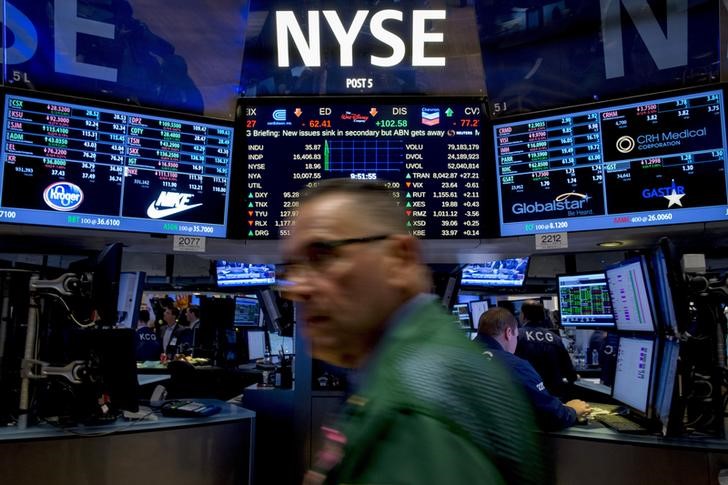By Claire Milhench
LONDON (Reuters) - Investors switched to defensive equities and bonds in the week to July 11 as the U.S. slapped tariffs on $34 billion of Chinese imports and then raised the stakes by threatening another round on an extra $200 billion of goods.
Investors worry that a full-blown China-U.S. trade conflict could hurt global exports, investment and growth, and have scrambled to take risk off the table.
Bonds attracted inflows of $5.6 billion -- their biggest inflows in 12 weeks -- data from Bank of America Merrill Lynch (NYSE:BAC) (BAML) showed on Friday, while defensive equity sectors such as healthcare enjoyed their largest inflows in a year, pulling in some $800 million.
Overall, equity funds attracted some $1.2 billion, with the United States pulling in $4.3 billion, Europe $4.2 billion and Japan $1.9 billion.
Yet BAML noted that 34 MSCI equity indices were down year-to-date, and only 11 were up after a bruising first half for global markets.
Turkish equities are the biggest faller, down 36.7 percent, as investors have grown concerned by the outlook for monetary policy under President Tayyip Erdogan, who has moved quickly to cement his power since winning an election.
Other big losers include Brazilian equities, down 15.3 percent, and South African stocks, down 13.3 percent.
As a whole, emerging equities are down 6.6 percent, toward the bottom of BAML's cross-asset table of winners and losers in dollar terms. Perhaps not surprisingly then, emerging market equity funds suffered redemptions of $1.3 billion in an eighth straight week of outflows.
But emerging market debt funds enjoyed their first inflows in three months, attracting a modest $900 million.
The lion's share of the fixed income flows continued to go to investment grade bond funds, which pulled in $2.3 billion, while high yield bond funds ended their nine-week drought, attracting $500 million.
